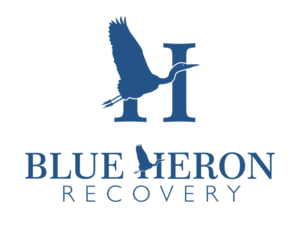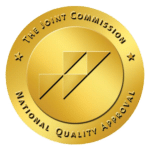Are you or a loved one struggling with addiction and seeking a path to recovery? Drug rehabilitation is a crucial step towards reclaiming your life from the grips of addiction. Drug rehabs in Texas offer unique programs tailored to meet diverse needs, providing a beacon of hope for those looking to turn their lives around.
Our team at Blue Heron Recovery is here to explain what you can expect from our Texas drug rehab program, from the initial admission process to ongoing support after discharge. By the end, you’ll have a clear understanding of how these programs work and how they can help you achieve lasting sobriety.
Initial Admission Process
Pre-Admission
The first step in your rehab journey begins even before you set foot in the facility. The pre-admission phase involves contacting the rehab center to gather information and schedule an initial consultation. During this consultation, you’ll discuss your addiction history, treatment goals, and any immediate concerns. This stage is crucial for determining whether the facility’s programs align with your needs.
Intake Assessment and Evaluation of Needs
Upon arrival, you’ll undergo a comprehensive intake assessment. This evaluation helps the medical team understand the severity of your addiction, any co-occurring mental health conditions, and your overall health status. The assessment may include interviews, questionnaires, and medical exams. The goal is to create a personalized treatment plan that addresses your specific needs.
Admission Procedures
Preparation is key for a smooth transition into the rehab program. You’ll receive a list of items to bring, such as identification, medical records, and personal belongings. Upon arrival, you’ll complete the necessary paperwork, including insurance verification, to ensure your stay is covered. The admission process sets the foundation for your treatment, making it essential to come prepared and with an open mind.
Orientation
Once admitted, you’ll be introduced to the facility and its staff. Orientation includes a tour of the premises, an overview of the daily schedules, and a briefing on the rules and expectations. Understanding the structure and regulations helps ease the initial anxiety and sets the stage for a productive rehab experience.
Types of Texas Drug Rehab Programs
Inpatient/Residential Programs
Inpatient or residential programs offer an immersive 24/7 care environment. These programs are ideal for individuals needing intensive support and a structured setting. The constant supervision and comprehensive care make inpatient programs highly effective for severe addictions and those with co-occurring disorders.
Outpatient Programs
Outpatient programs offer flexibility, allowing you to receive treatment while continuing daily responsibilities like work or school. These programs typically involve scheduled sessions at the facility, ranging from day programs to evening options. Outpatient care is a great solution for those with milder addictions or who have completed an inpatient program and need continued support.
Specialized Programs
Some Texas drug rehabs offer specialized programs tailored for specific substances or dual diagnoses. These programs address the unique challenges of different addictions, such as opioid dependence or alcohol abuse, and provide targeted therapies. Specialized treatment ensures that all aspects of your addiction are addressed, improving your chances of a successful recovery.
Treatment and Therapy Options
Individual Counseling
One-on-one therapy is a cornerstone of addiction treatment. This allows for personalized attention and the exploration of individual issues contributing to your addiction. Therapists often use cognitive-behavioral therapy (CBT) to help you change harmful behaviors and thought patterns, setting the stage for lasting change.

Group Therapy
Group therapy sessions provide a nurturing setting for individuals to exchange experiences and gain insights from others navigating comparable obstacles. The sense of community and mutual support can be incredibly motivating. Common topics in group sessions include coping strategies, relapse prevention, and emotional regulation.
Family Therapy
Addiction impacts not only the individual but also those dear to them. Family therapy aims to heal relationships and build a supportive home environment. These sessions address family dynamics and communication issues and provide education about addiction, helping families support their loved one’s recovery.
Additional Therapies
Supplementary therapies like art therapy, music therapy, and holistic treatments play a significant role in comprehensive rehab programs. These therapies offer alternative ways to express emotions and cope with stress, enhancing the overall treatment experience. Holistic methodologies prioritize healing the mind, body, and spirit, offering a comprehensive route to complete recovery.
Daily Life in Drug Rehab
Daily Schedule
Life in a Texas drug rehab follows a structured routine designed to balance therapy, activities, and personal time. A typical day might include individual counseling sessions, group therapy, recreational activities, and personal reflection time. This structure helps build a sense of normalcy and discipline, which is crucial for long-term recovery.
Living Accommodations
Living arrangements in Texas drug rehab facilities are designed to be comfortable and supportive. You’ll have access to amenities that make your stay pleasant, such as private or shared rooms, common areas, and recreational facilities. A supportive environment plays a vital role in enhancing your holistic well-being and fostering the recovery process.
Nutritional and Health Support
Good physical health is crucial for the recovery process. Rehab programs often include nutritional guidance and meal plans to ensure you receive balanced, healthy meals. On-site medical care addresses any health issues and ensures you’re physically fit to engage fully in the recovery process.
Transition and Aftercare
Preparing for Discharge
Transitioning out of Texas drug rehab can be both exciting and daunting. Preparing for this phase involves developing a personalized aftercare plan that includes ongoing therapy, support groups, and strategies for maintaining sobriety. A well-thought-out plan increases your chances of a successful transition back to everyday life.
Continuing Support
Recovery doesn’t end when you leave your Texas drug rehab. Ongoing support is crucial for maintaining sobriety. Options include continued individual counseling, participation in support groups like AA or NA, and regular check-ins with your treatment team. These resources help you stay connected and supported during your recovery journey.
Relapse Prevention
Relapse is a common concern for those leaving the Texas drug rehab. Effective relapse prevention strategies include setting up a support network, identifying triggers, and developing coping mechanisms. Building a robust recovery plan helps you stay focused on your goals and reduces the risk of relapse.
Contact Our Team Today
Knowing what to expect at a Texas drug rehab can ease concerns and prepare you for the journey ahead. From the initial admission process to ongoing support after discharge, each step is designed to provide comprehensive care and support. By understanding the various programs, treatments, and daily life in rehab, you can make an informed decision and take the first step toward lasting sobriety.
If you’re ready to explore the benefits of our Texas drug rehab, contact Blue Heron Recovery at (210) 588-0508 to schedule an appointment. Your path to recovery starts here.






